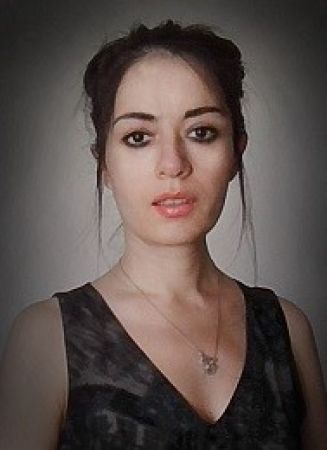The Mathematical Optimization Program of the Air Force Office of Scientific Research (AFOSR) has recently awarded two grants to Lehigh ISE in a total close to $1M.
 Lehigh ISE Assistant Professor Aida Khajavirad was awarded a three-year AFOSR $389K grant as the Principal Investigator (PI). The project is called “Novel Optimization Algorithms for Data Science Applications” and will be developed in collaboration with Professor Antonio De Rosa, from the University of Maryland. A variety of applications in data science can naturally be formulated as large-scale mixed-integer nonlinear optimization problems. In general, these problems exhibit multiple locally optimal solutions that are not globally optimal. Existing methods either rely on heuristics hence forgo any guarantee on the quality of the solution or use semi-definite optimization relaxations hence do not scale well and are impractical for large-scale problems. The goal of the proposed research is to develop scalable linear optimization relaxations with theoretical performance guarantees for data science applications such as data clustering, image matching, and sparse regression.
Lehigh ISE Assistant Professor Aida Khajavirad was awarded a three-year AFOSR $389K grant as the Principal Investigator (PI). The project is called “Novel Optimization Algorithms for Data Science Applications” and will be developed in collaboration with Professor Antonio De Rosa, from the University of Maryland. A variety of applications in data science can naturally be formulated as large-scale mixed-integer nonlinear optimization problems. In general, these problems exhibit multiple locally optimal solutions that are not globally optimal. Existing methods either rely on heuristics hence forgo any guarantee on the quality of the solution or use semi-definite optimization relaxations hence do not scale well and are impractical for large-scale problems. The goal of the proposed research is to develop scalable linear optimization relaxations with theoretical performance guarantees for data science applications such as data clustering, image matching, and sparse regression.
Khajavirad says: We are very excited as this grant enables us to better illustrate the vital role of optimization techniques in modern data science applications.
 Lehigh ISE Timothy J. Wilmott Endowed Chair Professor and Department Chair Luis Nunes Vicente was awarded a three-year AFOSR $503K grant as PI, titled “Multi-Level Multi-Objective Stochastic Methods for Learning and Optimization”. The main objective of this project is the development of innovative problem formulations for stochastic multi-level multi-objective optimization problems and the design of effective stochastic approximation methods (such as stochastic gradient methods) for the solution of large-scale instances of these problems. These methods will address relevant problems arising in machine learning, cybersecurity, and defense, such as adversarial learning, network interdiction, and power network defense.
Lehigh ISE Timothy J. Wilmott Endowed Chair Professor and Department Chair Luis Nunes Vicente was awarded a three-year AFOSR $503K grant as PI, titled “Multi-Level Multi-Objective Stochastic Methods for Learning and Optimization”. The main objective of this project is the development of innovative problem formulations for stochastic multi-level multi-objective optimization problems and the design of effective stochastic approximation methods (such as stochastic gradient methods) for the solution of large-scale instances of these problems. These methods will address relevant problems arising in machine learning, cybersecurity, and defense, such as adversarial learning, network interdiction, and power network defense.
Nunes Vicente says: Stochastic gradient methods are well studied for single-level problems, however, many application problems exhibit features such as conflicting objectives at different levels which have never been studied from a stochastic approximation view point. I am grateful to AFOSR to support research in such an exciting topic!
